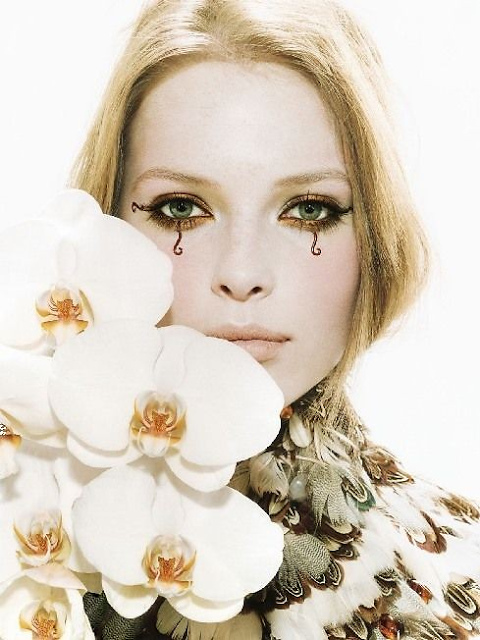
[responsivevoice_button voice=”UK English Female” buttontext=”Listen to Post”]
When reading a horoscope there are many factors to consider, but something we might want to think about first is to calculate the number of planets in the elements. There are four elements in astrology, FIRE, EARTH, AIR, and WATER. Psychologist Jung used these four elements to symbolize the functions of the personality. These functions were intuition (fire), sensation (earth), thinking (air) and feeling (water). They were primarily thought to represent the way we perceive the world, and we all possess one dominant function and also an inferior mode. The astrology of four has forever held ancient, invisible wisdom for it appears to dominate, some would go as far as to say it is the number of the universe. When considering the elements if there appears to be a deficiency, there are sometimes other compensatory factors. Thus, Sun conjunct Neptune or Sun conjunct Pluto will to some extent counterbalance the absence of planets in water. Astrology considers the differing personalities through these elements, from the hardy, stable, patient and plodding nature of a native born with many planets in EARTH, or the outgoing, confident, brazen energy of FIRE, or the social, intellectual, humane and friendly AIR, or the sensitive, receptive, and moody emotionalism of water. Using the elements is described as the cornerstone of astrology, and when human beings are divided this way it is an exceptional tool for personality analysis through these different temperaments.
Steven Arroyo devoted a book to the elements – at least a whole middle section – and it detailed the psychological meaning of an emphasis in an element and also a lack of any element in the character. It presented a psychological energetic approach and claimed we could all interpret any horoscope instantly in a practical and useful way. Liz Greene’s Relating also presented the topic as a Jungian framework and brought new insights and, explicitly, a deeper way to view the elements, which was revolutionary. On the spiritual side, the elements have been thought to colour the essential being, describing the essence of any individual. As most folks know, typing people has been a common practice over time and will show at what level our consciousness sits most comfortably, that is to say, the way we orientate ourselves in the world. If we are an intuitive/fire person, for example, we look for ways to make connections, see patterns, and sense meaning. The airy/thinking type of person would use their mind, deductive reasoning, and logic.
The next thing to examine is the qualities (cardinal, fixed, and mutable) and this tells us whether or not the individual is flexible or inflexible. Cardinal people have often been described as the most active of all the types, they jump into situations but have also been accused of not leaving something well alone. Many are the entrepreneurs, managers, homemakers, and peacemakers, to be sure. This energy is all about the initiative and taking charge. When a person has fixed signs predominant, they are more difficult personalities showing stubbornness and reluctance to change at all. Many are determined and persistent souls, but their actions tend to have the most powerful influence and can be far reaching. Most will long for a powerful, stable and prominent position in life. The mutable signs are the worriers and highly changeable, whether emotionally or intellectually; there can be misunderstandings among this group, but it also highly mental and their adaptability to situations is usually a blessing.
The next thing that astrologer often examines is the Ascendant, as being the lens we view life through. It signifies a particular mode of being in the world. It has been described as our social mask, which all influences must pass through. A fiery ascendant would be quick to express the being, since, they tend to rush through life. Possessing a watery ascendant has been described as one of the most difficult ones because the energies tend to be broody, overly sensitive, and even timid. Otherwise, they are incredibly feeling and approach life with empathy and a caring nature. Earthy ascendants present more common sense and are much slower to react, sometimes presenting a pearl of practical, worldly wisdom. Also carefully observing what is happening all around them. Airy ascendants approach the world using cool judgment, tending to be mostly friendly, human and intellectual. We should also look at rising planets for they tend to take the place of a ruling planet. The influence of a planet rising can dominate an entire life, it will exert a powerful influence for good or ill. Other angular planets are also seen to be important for they demand an immediate expression of life and are always obvious to others.
The Sun and Moon should be analysed next, for they indicate the primary masculine and feminine images of the horoscope and relate to the outgoing and inner nature of the personality. The Sun is where our heart belongs and the things we want in life, truly, it demands that we live out those qualities described by its sign, house, and aspects. The Moon side of any individual is far more personal, hidden, and absorbs experiences on a feeling level. Whereas the Sun describes our conscious action, the Moon symbolizes our unconscious reactions and everything that has formed as a habitual pattern in our routines, as well as indicating the accumulation of past experiences. The Sun challenged in a horoscope shows the main obstacles, limitations, difficulties or ease of achieving our life goals.
According to Demetra George:
When looking for things to stand out, first note the sign of the Ascendant, any planets conjunct it, and the sign, house, and configurations of the Sun and the Moon, and determine if there are any planets in close conjunction with these luminaries. To the extent that the Ascendant, Sun, and Moon are three principle significators of the life, an analysis of these factors by element can give you clues to the basic disposition of the client.
